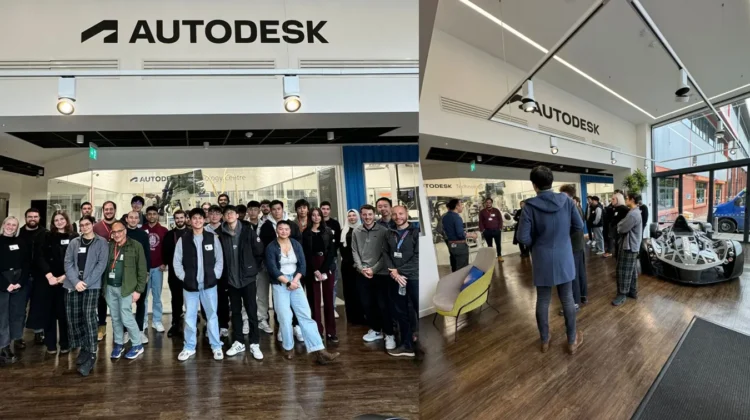
A cohort of students in King’s College London’s Department of Engineering have completed the inaugural year of a new course created in partnership with US software firm Autodesk to teach students the principles of product design for manufacture.
The newly created Computational Design for Manufacture module, led by Francesco Ciriello, tasks students with designing a product that considers the environmental and economic impacts of its creation from design to production.
Over the course of ten weeks, students engaged in a multi-stage manufacturing project in which they crafted the narrative of a product, wedding together generative design with computational manufacturing techniques.
The resulting design portfolios showcased analyses of the trade-offs between cost, sustainability and performance of the components, ensuring students grappled with the multi-faceted challenges they would face in an engineering career, while also producing artifacts they could share with future employers.
To support their coursework, students engaged with a series of hands-on manufacturing workshops on techniques such as milling, toolpath programming and mould design using industry-grade simulation and manufacturing equipment.
Students also looked to embed designing for sustainability principles in their work by using AI tools to produce a Digital Product Passport, an EU-mandated digital identity card for products and components that allows individuals and authorities to view a product’s sustainability credentials.
As part of the module’s focus on developing critical making skills needed to succeed in industry, in October students took a field trip to Autodesk’s Advanced Manufacturing Facilities in Birmingham for a first-hand look at its practices and technologies.
‘Preparing our students for the rigours of a career in industry, giving them the skills to work critically at every stage of a product’s lifecycle and within the bounds of a changing technical and legal landscape, is key to our work at King’s,’ Ciriello said. ‘Our work with the incredibly enthusiastic Autodesk Education team helped bring these new design practices to life for students and advance our technical capabilities for manufacturing.’
The course culminated in a November demonstration day, where students presented their projects to an expert panel of judges from Autodesk, the Engineering & Design Institute, and MathWorks.
‘I was really impressed with the quality of students work, said Charles Jones, education manager at Autodesk. #King’s College London are a breath of fresh air; their whole approach pushes students to look at problems in the most holistic way possible. Innovative modules like these push students to explore the breadth of solutions available to them, so they can critically evaluate the steps they needed to take to create the best, most profitable and efficient product. I believe we will see greater need for engineers to understand all stages of the design and make process, and I believe courses like those delivered by King’s are equipping students to meet that need.’


